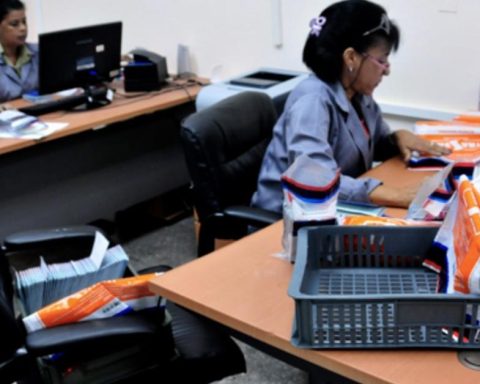The United States Department of the Treasury announced this Monday that it reached an agreement with the company CA Indosuez Switzerland SA (CAIS), dedicated to corporate and investment banking, to pay 720,258 dollars for having breached the regulations of the embargo on Cuba and other territories. , with which he carried out bank transactions in dollars.
The Office of Foreign Assets Control (OFAC) reported that CAIS, an indirect subsidiary of Credit Agricole Corporate and Investment Bank, headquartered in Paris, agreed to remit $720,258 to settle the corresponding fine.
The Swiss firm is engaged in wealth management and corporate and investment banking with operations in several countries. According to the Treasury Department, his portfolio included US dollar bank and securities accounts of 17 individual clients located in embargoed jurisdictions. In addition, he handled business on behalf of these clients in the US financial system and even with bank intermediaries.
Despite the fact that the finance company had the information of its users, from April 2013 to April 2016 it helped its clients buy securities issued by companies in the United States through stockbrokers and other stock market participants.
In total, 240 transactions worth $2.05 million were made. In addition, it allowed its clients to participate in 33 commercial transactions for more than 1.02 million dollars through bank intermediaries.
CAIS delivered approximately $3.07 million in economic benefit to individuals in Cuba, Crimea, Iran, Sudan, and Syria
“CAIS delivered approximately $3.07 million in economic benefit to individuals in Cuba, Crimea, Iran, Sudan, and Syria, thereby damaging the integrity of multiple sanctions programs and their associated political objectives over three years,” the Treasury Department said. in a release broadcast this September 26.
For its part, CFM Indosuez Wealth, another subsidiary of the bank but located in Monaco, agreed to remit 401,039 to settle its possible civil liability for operating bank accounts of 11 individual clients located in territories sanctioned by the United States.
For breaking the United States embargo agreement, last January, the hosting platform Airbnb was sanctioned by the Treasury Department to pay $91,172. The firm, based in Fran Francisco, California, allowed payments from US travelers who were in Cuba for reasons other than the 12 categories authorized by OFAC and did not have records associated with transactions on the island.
Also, the Treasury Department agreed last April with the Newmont mining company, based in Denver, Colorado, pay $141,442 to break the embargo after having purchased explosives and accessories of Cuban origin from an external supplier in four transactions.
________________________
Collaborate with our work:
The team of 14ymedio is committed to doing serious journalism that reflects the reality of deep Cuba. Thank you for joining us on this long road. We invite you to continue supporting us, but this time becoming a member of our journal. Together we can continue transforming journalism in Cuba.


















